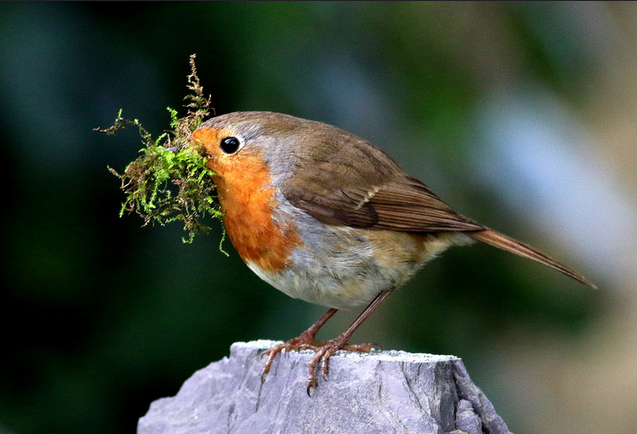Arguments are tiresome, particularly political ones. Election campaigns make me feel like I’m being water boarded. News outlets are relentless with opinion coverage, and it bleeds into the population. Friends, relatives, even acquaintances want to know where I stand, and are eager to express where they stand, as almost everyone parrots what opinion coverage has fed them from every biased news outlet from TV, to internet, to print media.
It’s rare to find an opinion lightly held, one that is provisional, which means one that is essentially ‘open’ to multiple possibilities. Opinions are becoming ‘brick-like’, or like some sort of ‘mind cement’, sacks of coagulating stuff we’ve managed to put together from bits and pieces of our daily experience over years. I’m watching a robin build a nest right now outside the window. She is most industrious, bringing in bits and twigs from near and far to build her nesting formulation. It’s urgent, it’s survival for what she intuits is coming.
I see an urgency in the opinions around me too, amassing issues and counter issues, investing them with emotion, which is a ‘self-glue’ that helps them solidify. I see sophistry all around me, perhaps most evident among political commentators, engaged in rhetoric to persuade and convince to their position, squeezed into tiny network timeslots…Often not a discussion, a taking up sides and beating the opponent with arguments with half-truths, no truths, misinformation, summarized and distilled down to sound bites, political points between commercials.
Do you know why we feel this national compulsion to argue positions? Here’s a thought…It starts with self-identity. We identify who we are, to ourselves, by stories we tell. As Tarthang Tulku Rinpoche says:
“In knowing, ‘I’ observe, categorize, and characterize; ‘I’ apply names and labels. This activity itself seems to be what ‘I’ label as ‘I’. The unique energy that ‘I’ bring to knowing, mirrored back to ‘me’, confirms the truth of ‘my’ existence at the center of experience. ‘I’ find ‘myself’ reflected everywhere, for each known object, insofar as it is known, is ‘my’ creation.†LOK 195
So, we’re always thinking to maintain self-existence…telling stories to ourselves and others…about everything we see, every idea we bring forth, every object we conjure, we see ourselves reflected in them, like seeing our own image in a pool. All objects refer back to me because they came from me, and it is this circle of subject relating to object that I construct meaning out of stories that I summon, reprise, and recite…I reel off, let slip, call upon and fill in with stories… continuously.
Every time I take a position and argue it, I am reasserting my own existence. Why do I need to assert my Self? Is it because my self is a story I put together over time that I try to make solid, and telling it over and over makes me feel more substantial…I feel like ‘somebody’…like my body ‘feels’? So this is how it is…so this is who I am…this is how I feel…the bubble of my story inflates, I float flabbily toward an inevitable bursting…my gathering of surface tension stretched to its limit…POP…fizz… I and we…
“…slip away,
Into the unimaginable dark floods of time,
And we tremble before dawn,
Until our hearts stop beating,
And then they do again. …………From ‘Machhranga’, by Ken McKeon


It quite possible that just as it is a problem of missed possibilities and perceptions when we tend to take time and space for granted, it is similar when we accept or reject ideas without understanding the significance and personal consequences of doing so. For instance, Rinpoche says in his book ‘Dimensions of Mind’:
Thank you Hayward,
I appreciated your subsequent and related post (Thoughts as Position) and wanted to copy it here as a linked comment…
This is a really nicely developed piece.
Thank you,
Hayward